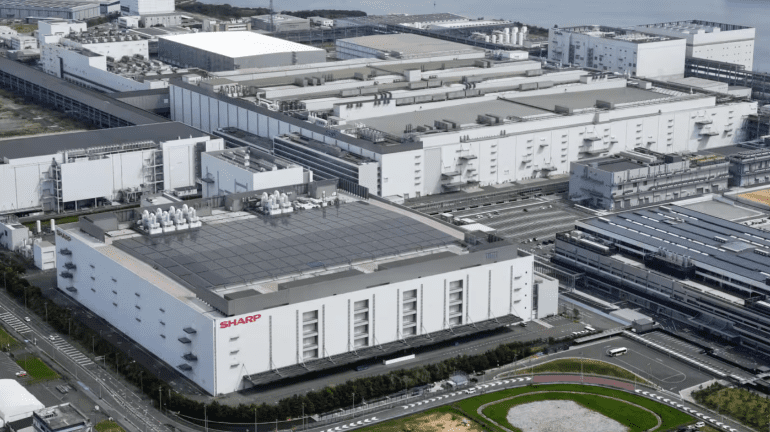- Sharp and KDDI collaborate to transform an old factory into an AI data center powered by advanced Nvidia chips.
- Plans underway for a joint venture involving other key players like Datasection.
- Procurement of 1,000 servers with next-gen Nvidia GPUs, facilitated by Datasection and Super Micro Computer.
- KDDI to construct and manage the data center network at Sharp’s former factory site in Sakai.
- Data center targets developers of large-scale language models, enhancing AI innovation prospects.
- Nvidia’s Blackwell GPUs promise improved computing performance and energy efficiency.
- Anticipated to be one of the largest Blackwell GPU procurements in Asia.
- Sharp’s strategic pivot reflects commitment to adaptability and innovation amid operational challenges.
Main AI News:
In a strategic move poised to revolutionize Japan’s technological landscape, Sharp and telecom giant KDDI are set to repurpose a defunct factory site into a state-of-the-art data center fueled by advanced Nvidia chips, sources reveal.
The collaboration between Sharp and KDDI marks a significant shift towards innovation, as both industry leaders join forces to explore the immense potential of artificial intelligence. According to insiders, plans are underway to initiate discussions on forming a joint venture, with prominent players like Japanese systems developer Datasection expected to participate.
While specific details regarding investment and ownership remain pending, industry observers anticipate a substantial commitment to drive this ambitious project forward. Central to the endeavor is the procurement of approximately 1,000 cutting-edge servers, featuring next-generation Nvidia graphics processing units, notably from the Blackwell series.
Partnering with U.S.-based server manufacturer Super Micro Computer, Datasection is poised to facilitate the seamless acquisition of these servers, underscoring its pivotal role in the venture. Meanwhile, KDDI is gearing up to spearhead the construction and operation of a robust data center network at the site of Sharp’s erstwhile LCD television panel factory in Sakai, near Osaka, slated for closure later this year.
Positioned as a beacon for innovation, the envisioned data center aims to cater to developers specializing in large-scale language models, which serve as the cornerstone of cutting-edge AI applications like ChatGPT. As anticipation mounts for the impending rollout of Blackwell GPUs later this year, Nvidia’s promise of enhanced computing performance and energy efficiency heralds a new era of possibilities.
Industry pundits foresee the Blackwell procurement initiative as a monumental stride in Asia’s technological evolution, underscoring the region’s growing prominence in the global AI landscape. Notably, Omdia’s latest report underscores Nvidia’s dominance, with a commanding 77% share of the global market for AI data center chips in the preceding year.
The transformation of Sharp’s Sakai plant, which required a substantial investment of approximately 430 billion yen ($2.7 billion at current rates) in 2009, reflects a strategic pivot towards harnessing emerging technologies. Despite initial operational challenges, Sharp’s decision to repurpose the site underscores its commitment to adaptability and innovation in a rapidly evolving digital ecosystem.
With the stage set for a groundbreaking collaboration between industry titans, the conversion of Sharp’s former factory into a cutting-edge AI data center signifies a pivotal moment in Japan’s quest to redefine its technological prowess on the global stage.
Conclusion:
The collaboration between Sharp and KDDI to establish an AI data center heralds a transformative shift in Japan’s tech landscape. With cutting-edge Nvidia technology at its core, this venture not only signifies a strategic move towards innovation but also positions Japan as a formidable contender in the global AI market. The convergence of industry leaders and emerging technologies underscores the country’s commitment to adaptability and underscores its potential to lead in shaping the future of AI-driven innovation.

